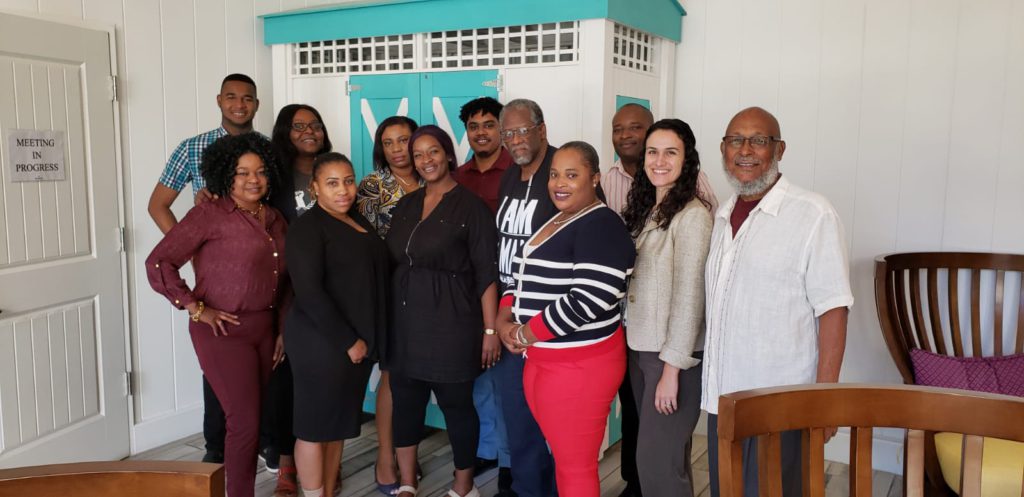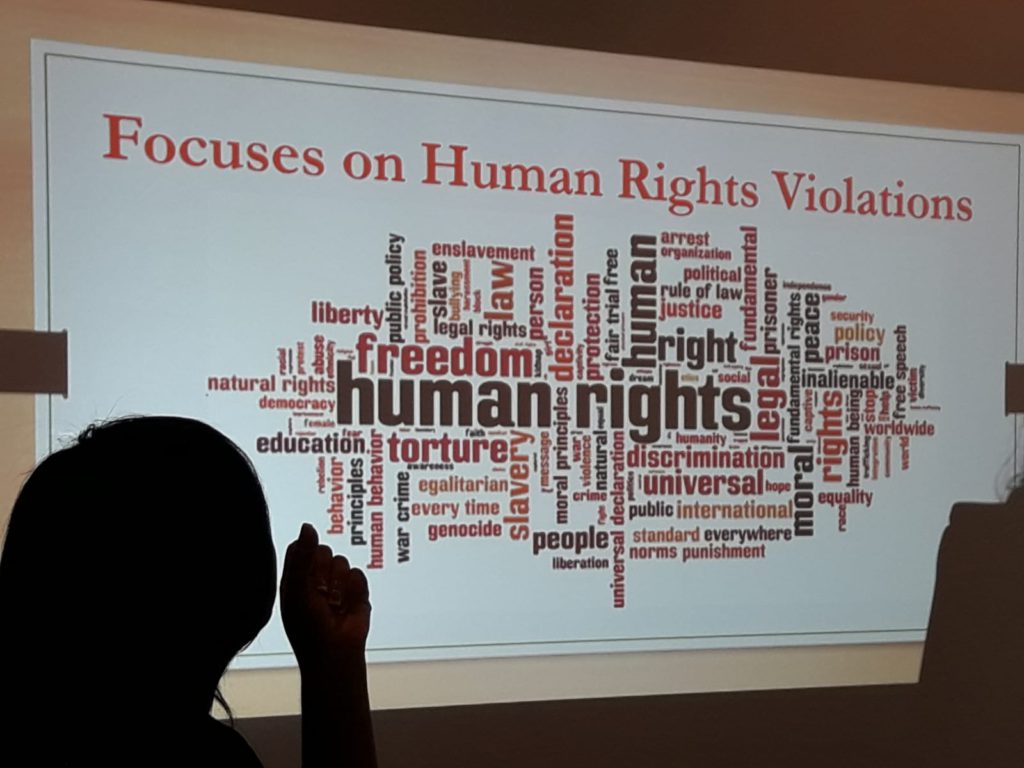HUMAN RIGHTS CONFERENCE TALKS TRANSGENDER ISSUES



Human Rights Bahamas along with the DeMarco Foundation (Alexus D’Marco), HIV Center (Denise
The following story appeared in The Tribune:
9 April 2019
By RICARDO WELLS
Tribune Staff Reporter
rwells@tribunemedia.net
THERE has been a “vast improvement” in the general treatment of transgender Bahamians, a local advocate for the community said yesterday, adding however that more still needs to be done in terms mental health services and other areas.
In an interview with The Tribune yesterday Alexus D’Marco, lead spokesperson of the D’Marco Group and the newly launched United Caribbean Trans Network (UCTrans), pointed to a formalised education campaign and wider social awareness as the two major reasons behind the “shift in the culture” across The Bahamas.
Referring specifically to several ongoing discussions on ways to improve legal frameworks and health policies that presently discriminate against trans Bahamians, Ms D’Marco said the Bahamas was now “setting the pace” for “inclusion and understanding”.
“There is a vast improvement,” she said. “As far as respect for trans persons goes, and how they identify in The Bahamas, people are now realising and understanding that there is a difference between sexual orientation and gender identity.”
Ms D’Marco said a streamlined education strategy alongside a steered public discussion on the transgender lifestyle has aided an overall campaign of understanding. She said based on this education, there has been a shift in culture.
To that end, Ms D’Marco said local trans persons are “blessed” to sit at the table with local “decision makers and gatekeepers,” namely the Office of the Attorney General with whom discussions concerning rights, protections and avenues to communicate perceived bias or oppression have been had.
“For them to open their door to us is a step in the right direction because back in the past you wouldn’t have had that,” Ms D’Marco said. “I think we are moving and progressing slowly, but we are making some headway.
“We have our seat at the table,” she added.
Attorney General Carl Bethel later confirmed legal officers attached to his office had spoken to community representatives on a “technical level”.
In line with this, Ms D’Marco said yesterday her organisation was at the “beginning stages” of a policy document that could end discriminatory practices against trans Bahamians.
She explained: “Well, now that we are able to document human rights violations against persons living in the Bahamas, I think there is more accountability for those persons and they are aware that mechanisms are in place to protect them. So for us, we are now able to document our experiences and formalise a document that says, on one side, ‘we should have this,’ and on the other, ‘but we are only getting this.’”
Ms D’Marco added: “That is where the complete change will come. So the stigma and discrimination is still a thing, but there is now documentation of it, so people are now more hesitant to do something, or attack, or put us in fear. We are taking the necessary steps to not only recognise our rights as global citizens, but to point out where and how we are being discriminated and causing change.
“It’s the same with healthcare. We’ve seen so much improvement in recent years, but that started with us saying to our government that we are here and that we do have needs that ought to be addressed.
“As it stands now, we are at the page where the government has acknowledged that trans persons do exist in The Bahamas…that now links us to specialised programmes and treatments that we may need. We aren’t being pushed into some dark little corner.
“You see, that link has streamlined our relationship with national healthcare programmes like the one for HIV under the auspices of Dr Nikia Forbes, where trans Bahamians are able to access medications and treatment in a discrimination free environment.
“So while these linkages are closing the gaps on the physical health side, we are now making the push for the further standardisation of mental health components to afford trans people the access to therapy,” she asserted.
Ms D’Marco continued: “We need to, as a country, take mental health more seriously. But for the sake of my discussion, we need more avenues for trans persons to have access to adequate mental treatment and not feel scorned or pushed aside. For a trans person who is undergoing reassignment surgery or affirmation of who they are, those services aren’t here. These persons have to go abroad or find these services online.
“We are now to the point where we need to have an in-country doctor or an in-country psychologist that can provide these forms of therapy and treatment. We are finding our allies and bridging those gaps as we speak, but there is a lot more that can be done from a government standpoint,” she added.
According to Ms D’Marco the number of trans Bahamians presently “self-identifying” have increased in recent years. In addition to that, many of those persons opted to seek asylum in other countries in pursuit of more standardised rights and services.
Clarifying this aspect, Ms D’Marco said her organisation was pushing to make these rights and services “basic” in The Bahamas.
“Those who are left, they are fighting the cause for those that are coming behind us; the generation that is to come. We don’t want them to go through the violence, the abuse and the discrimination. We want them to have that peace,” she said.
“They deserve that. They should have that right to live in peace and be comfortable to be who they are. There should be things in place, and as a citizen of this country it is their right to have it; and where it doesn’t exist, we will demand it.”
